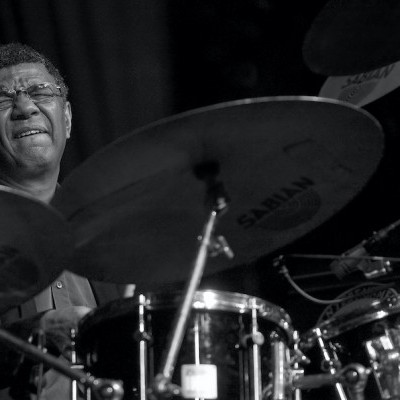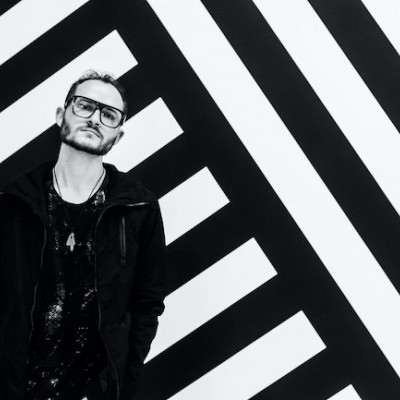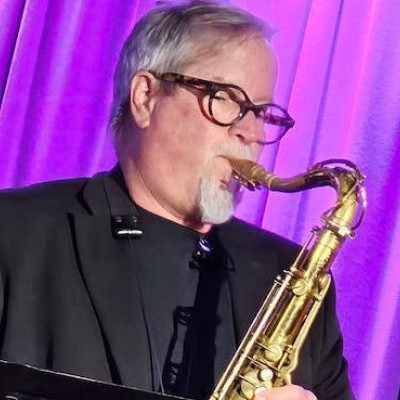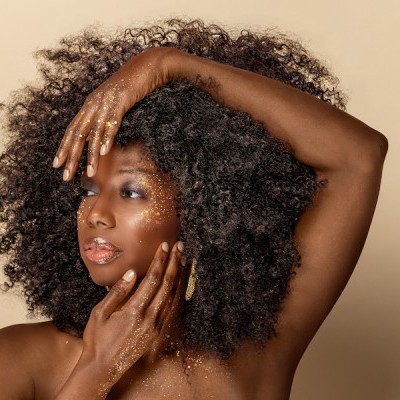Oct 28, 2025 10:47 AM
In Memoriam: Jack DeJohnette, 1942–2025
Jack DeJohnette, a bold and resourceful drummer and NEA Jazz Master who forged a unique vocabulary on the kit over his…
The Moscow jazz scene marks its 95th anniversary this year and currently is potent enough to sustain four jazz clubs with nightly shows, numerous jazz concert series at several major venues, half a dozen annual jazz festivals and a handful of jazz education programs—three of them offering graduate-level coursework.
Even if the scene is large enough to support hundreds of local and visiting musicians, though, great drummers still are tough to find in Russia’s largest city.
Drummer Sasha Mashin, 41, moved to the capital from his native Saint Petersburg in the late 1990s, when he found that the brain-drain from his hometown—Russia’s second-largest city—was robbing him of worthy partners.
“Jazz music exists to experiment,” Mashin said. “It’s bound to reflect what is happening to us in the year 2018. What was played in 1952 was absolutely modern; it was top notch. But to endlessly reproduce now what has been invented back then ... maybe it’s normal for some, but not for me, that’s for sure.”
Mashin started early: At 14, he already was playing professionally and toured Russia with a Leningrad-based Dixieland band. A quick succession of jazz jobs followed, including gigs with alto saxophonist Zhenya Strigalev (who encouraged Mashin to test the outer boundaries of the jazz idiom) and with the country’s most famous jazz saxophonist/bandleader, Igor Butman.
Mashin soon found himself a part of Moscow’s busiest jazz trio, playing alongside pianist Yakov Okun and bassist Anton Revnyuk (who later was replaced by Makar Novikov), which became the rhythm section of choice for dozens of U.S. and European jazz players touring Russia. Everyone from Benny Golson to Johnny Griffin and Eddie Henderson to Steve Slagle, Donny McCaslin and Russian-born, New York-based trumpeter Alex Sipiagin tapped the trio for support.
It was Mashin’s relationship with Sipiagin that, in part, has helped the drummer flourish, recording on the trumpeter’s 2014 album, New Path (ArtBeat), and touring Europe with the bandleader as recently as May. Sipiagin also performs on Mashin’s debut as a leader, Outsidethebox, which was released in April on Rainy Days Records, a new Saint Petersburg-based label that takes name from the city’s often desolate weather.
“Our goal is to create radically a new product, forming a relevant Russian jazz scene in the context of the world industry,” said photographer Eugene Petrushanskiy, who launched the label with Mashin and several other jazz enthusiasts. In April, the pair presented their project during jazzahead!, Europe’s largest jazz industry forum and trade fair in Bremen, Germany.
“A jazz musician is an artist in the first place, an artist who is bound to generate new ideas. And this is not just about the sounds you produce,” Mashin said. “It’s rather about your vision, about your perspective, about your perception of life in general. If you can transmit your ideas, your feeling through your music—that is what you can call your highest achievement.”
On Mashin’s right forearm, a tattoo of a wide-open box suggests his seriousness about the album’s exploration of new ideas—and jazz, in general.
The list of personnel on Outsidethebox totals 16 musicians from Russia, Cuba, the U.S. and Europe—including Italian saxophonist Rosario Giuliani and Dutch vocalist Hiske Oosterwijk, who also contributed lyrics to three tracks. Six tracks are instrumentals, with titles suggesting Mashin’s pursuit of life’s oddities, like “Strange Party” and “Ku Ku.” And tracks like “7=5” feature unusual rhythmic patterns and complex time signatures.
“The general idea of this album is to tear free from the stereotyped opinions and mindsets we set for ourselves,” Mashin said. “Self-censorship is what’s happening with all of us in Russia now: We set restrictions upon ourselves, in multiple aspects. This is completely unacceptable in music. Jazz music is what lets you to be maximally open and free; one of the central ideas in this music is to seek that freedom, and not to be afraid of experimenting.”
Most of the compositions on Outsidethebox were written by Sipiagin and Strigalev. However, the album’s concept definitely is Mashin’s—and not simply because the program features some drum solos. Though a few crop up, it’s Mashin’s ensemble playing that keeps the program cohesive.
Rainy Days’ next project is a live date by Zhenya Stigalev’s Never Group, with Luques Curtis on bass, Obed Calvaire on drums and Federico Dannemann on guitar. The concert is to be held at one of the venues within the Aleksandrinsky Theater in Saint Petersburg, which also hosted the International Jazz Day concert earlier this year.
What the new label is attempting to do—transcending boundaries and bringing disparate people together through a global celebration of a music—plainly speaks the language of freedom. DB

Jack DeJohnette boasted a musical resume that was as long as it was fearsome.
Oct 28, 2025 10:47 AM
Jack DeJohnette, a bold and resourceful drummer and NEA Jazz Master who forged a unique vocabulary on the kit over his…

“I’ve told students, ‘I don’t mind if you use AI for this or that project,’” says MIT’s Pascal Le Boeuf. “‘But you need to tell me.’”
Sep 18, 2025 11:14 AM
A standard joke when it comes to discussing artificial intelligence, or AI, is that it’s developing so rapidly that…

Chuck Manning Works for NASA … and plays jazz.
Sep 18, 2025 11:23 AM
Congratulations! After years of study, you’ve earned your degree in jazz performance. But let’s face it: Making a…

Gadabout Season developed over many months of recording sessions in Brandee Younger’s East Harlem living room.
Sep 16, 2025 11:52 AM
When she’s on the road, Brandee Younger enters a hybrid state of action and contemplation. Free of daily distractions…

Cleo Laine, 1927–2025
Sep 16, 2025 10:03 AM
The music world mourns the loss of three important artists from the realms of jazz, blues and beyond with the recent…